HOMECOMING: PIANIST AMY YANG RETURNS TO THE MOORES SCHOOL OF MUSIC
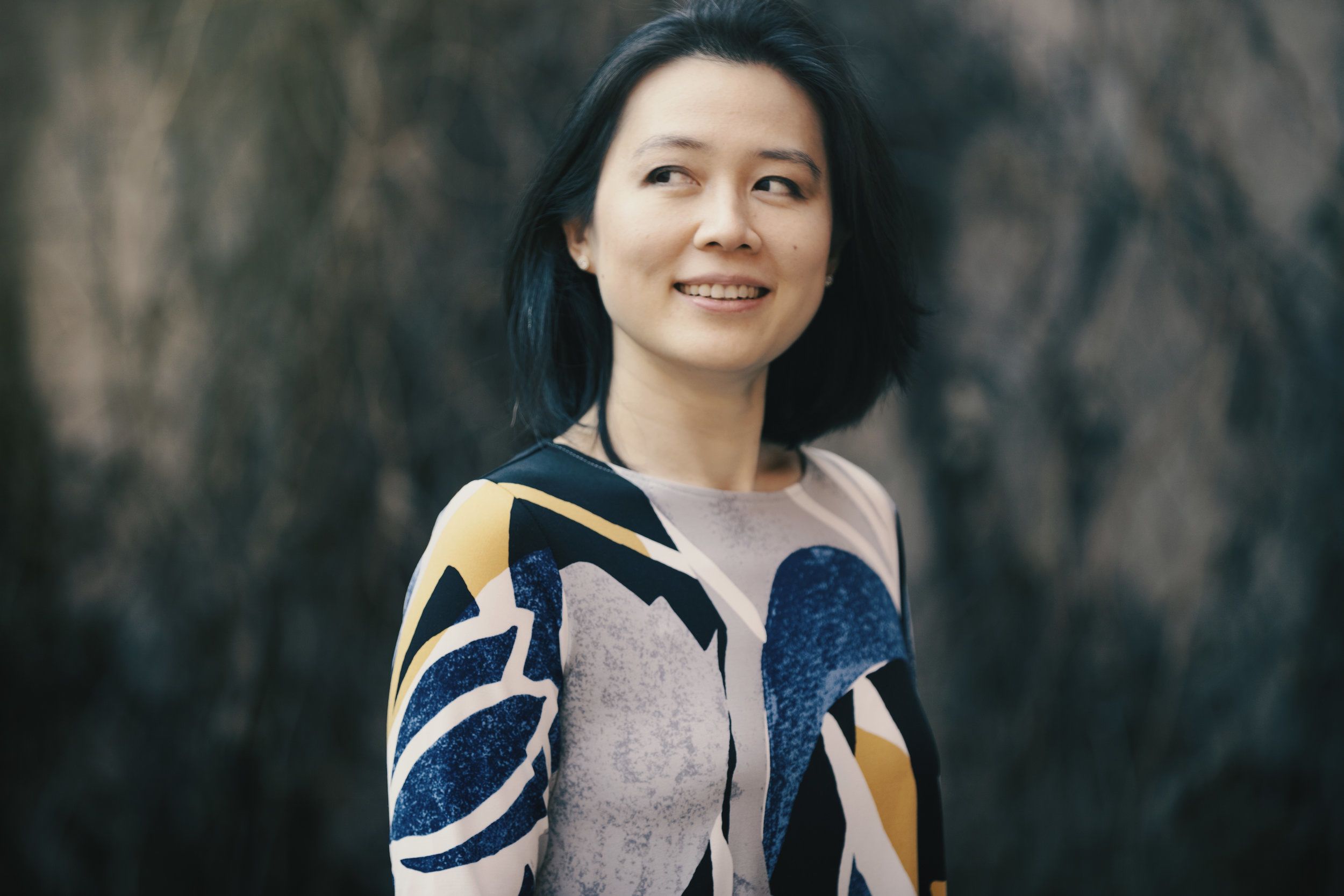
Amy Yang, the Associate Dean of Piano Studies and Artistic Initiatives at Curtis Institute of Music is no stranger to the University of Houston. While she wasn’t a student at the university, she grew up roaming the halls and exploring its libraries throughout her childhood.
Her father, Dr. Hua Yang, emigrated from China to pursue a degree in music composition, and when Amy and her mother joined him in the states, the University of Houston became their second home.
From her earliest memories, Amy was surrounded by music. Her grandfather was a conductor, her mother a soprano, and her father a composer, which led to her forming a relationship with piano as a young child. “Around the time I was born, China had just reopened its economy. We were poor, but fortunately, we had an upright piano, and my father taught me at home. Our bedroom shared the same room as the piano, so music was always around me,” says Amy.
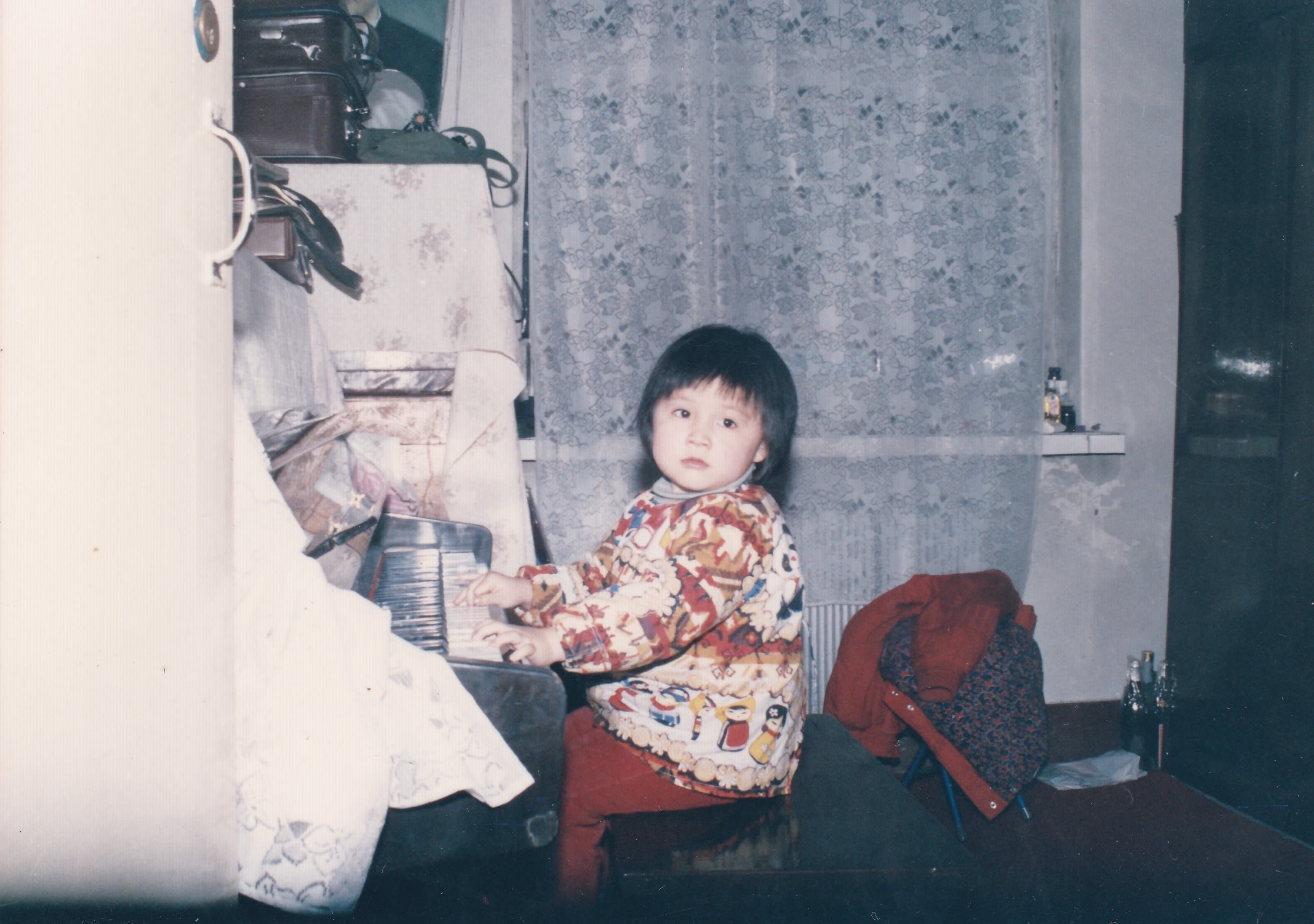
Amy playing piano as a young girl.
Amy playing piano as a young girl.
Eventually, she began taking piano lessons, but those lessons stopped when she was eight years old, and her father immigrated to the United States.
Hua Yang always dreamed of being an engineer, but due to The Cultural Revolution, he and his family had to move to the countryside to receive work and education in specific fields. Because of this political movement, Hua and his family experienced great hardship, but in 1975 Hua had the opportunity to leave the countryside and join a performing troupe.
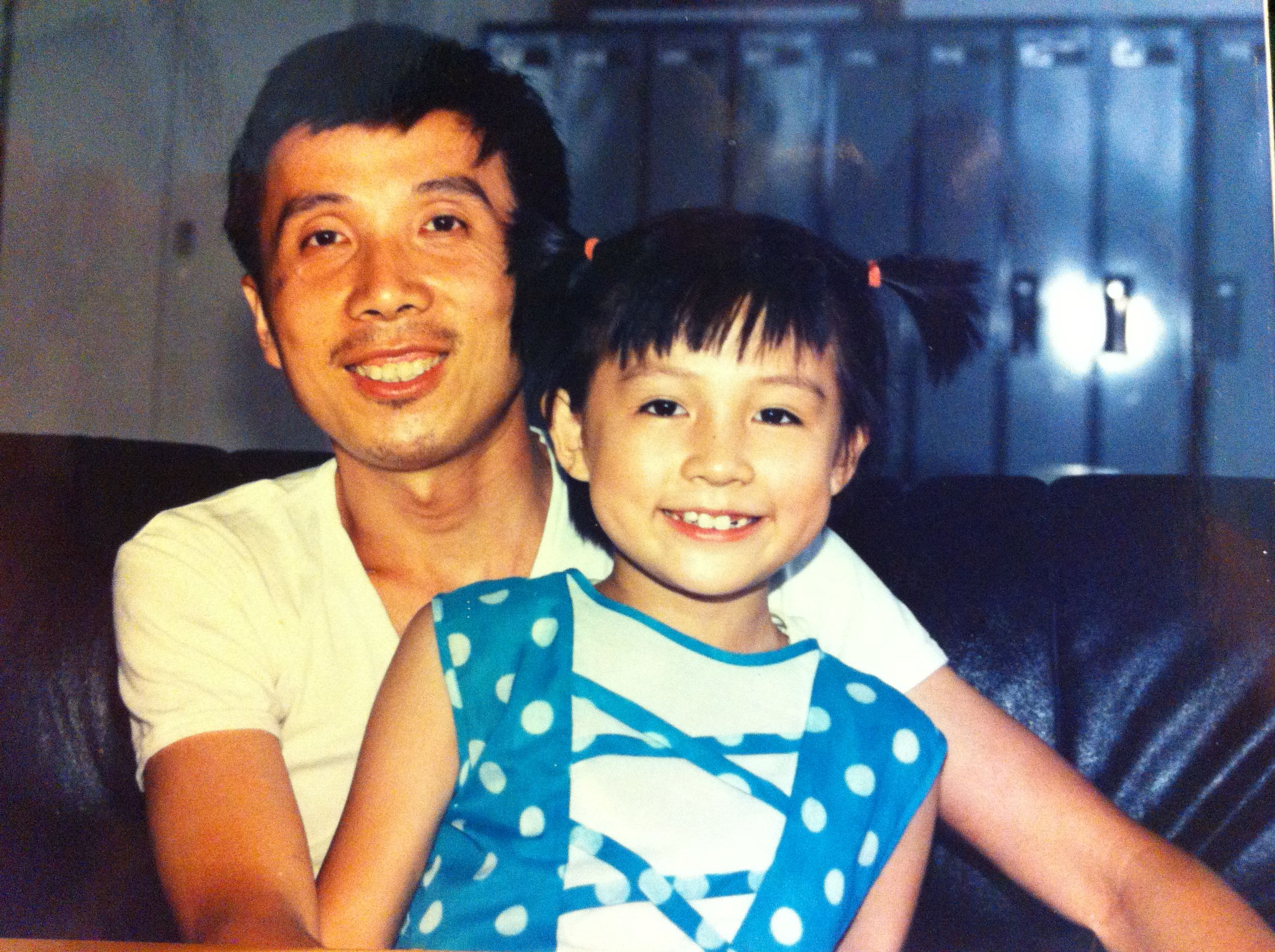
Amy and her father, Hua
Amy and her father, Hua
Hua’s father was a professional conductor and was no stranger to the stage. So, his love for music came naturally and blossomed as he performed with the troupe over the course of two years, which led him to apply to the Shenyang Conservatory where he went on to major in composing and conducting. Upon graduating from Shenyang Conservatory, he continued his study as a graduate student and taught music theory and composition for six years, as required by China’s law post-graduation. Hua then applied to a multitude of schools in the United States, ultimately choosing the University of Houston.
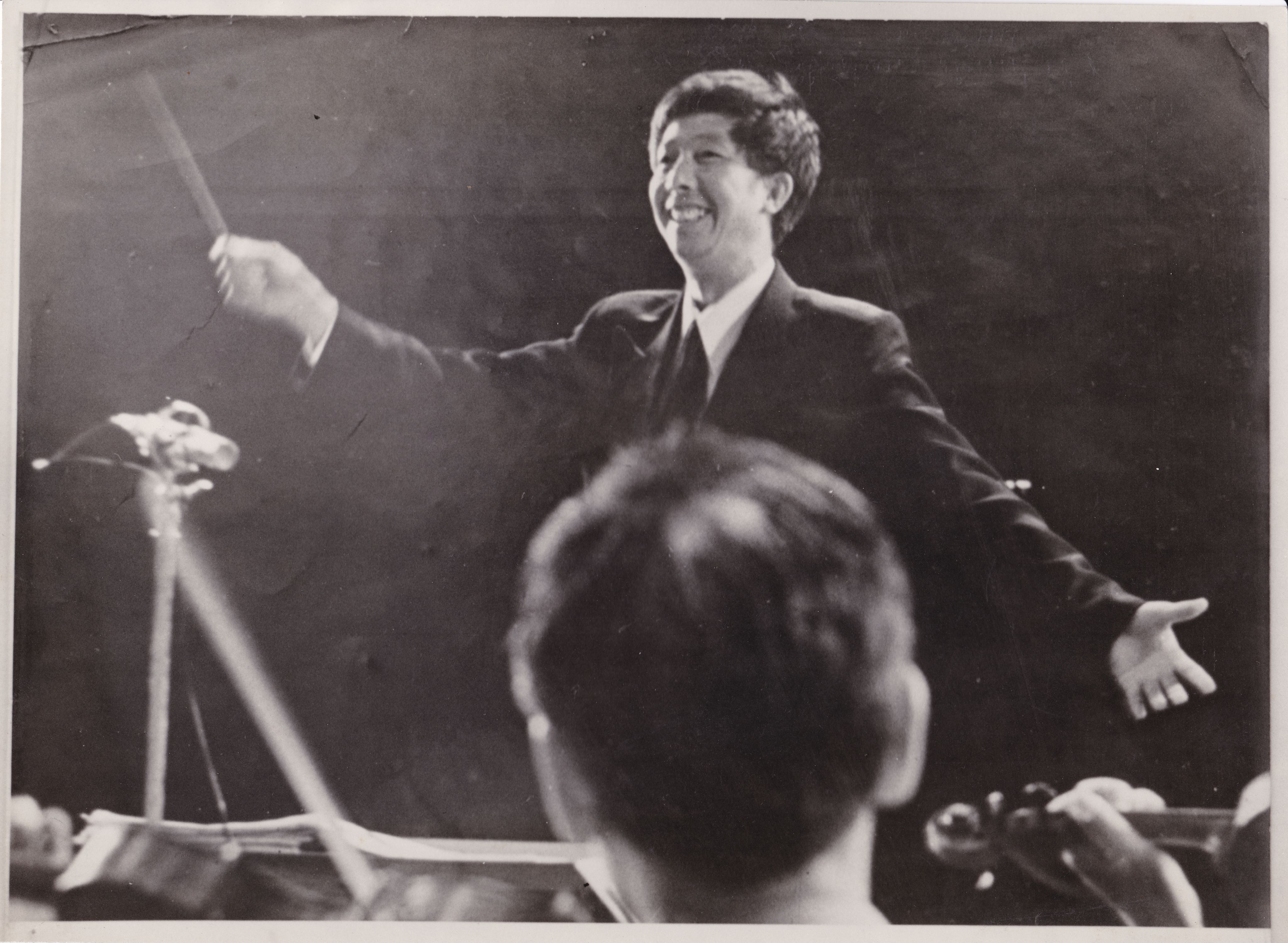
Hua's father (Amy's grandfather) worked as a professional conductor
Hua's father (Amy's grandfather) worked as a professional conductor
After his first year as a graduate student and with encouragement from professors, Hua decided to pursue his DMA in composition. “Deciding to pursue my DMA allowed me to slow my study pace because my wife and daughter were still in China, and I wanted to wait for them. I used that time to learn computer programs and new software that would elevate my musical career and knowledge,” said Hua.
After his first year as a graduate student and with encouragement from professors, Hua decided to pursue his DMA in composition. While studying at the University of Houston, Hua met Timothy Hester, Professor of Piano at the Moores School of Music. “Tim had a big bag of music scores he’d carry with him, and he performed so many concerts that I wondered how he had time to practice,” Hua said. Little did he know that Timothy Hester would play a huge role in his and Amy’s lives.
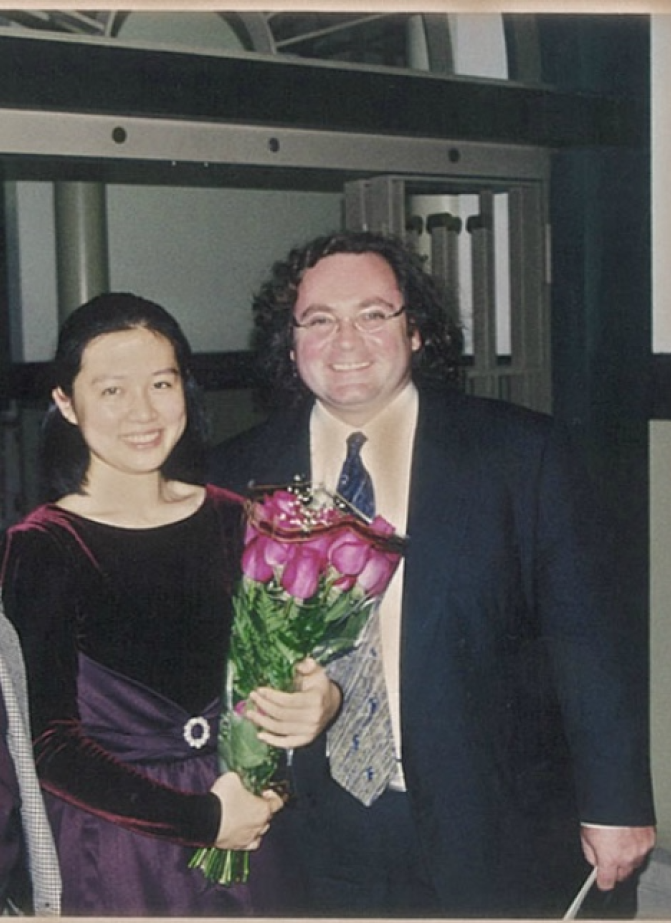
Amy Yang and Tim Hester
Amy Yang and Tim Hester
When Amy was 11, she and her mother immigrated to the U.S. to join her father Hua.
“I quickly became one of those children that just tagged along with their parents to work – in this case, school. Thanks to the University of Houston, I had access to so many phenomenal resources. I would go into the library and listen to recordings of faculty recitals and that’s where I first heard Timothy Hester play. I was completely spellbound by his artistry. Apparently, I asked my dad for a piano and the rest was history,” says Amy.
“Occasionally, I would take Amy and her mother to the Moores School of Music to use a piano room so they could practice. Eventually, we were able to get our hands on an old piano, but because we lived in an apartment, practice time was very limited. So, the first thing she [Amy] would do after school was practice piano until her 9:30 p.m. cutoff time – so as not to wake the neighbors. She worked hard to compensate for the time lost when she was in China,” says Hua.
As Amy got older, her calling towards music became more apparent and much more defined during her years as an adolescent. “Timothy Hester taught me during my teenage years, and I owe everything to him and my parents. I think it was the best musical education anyone could have had and above all else, I think Hester and my dad just made it fun. It was the most artistically generative and fun education anyone could have had. There wasn’t one lesson Hester taught me that wouldn’t have me laughing my head off. He has the ability to make hard work enjoyable. It was never about work; it was always about the joy of playing and sharing music. That is the most resonating principle for me as I now share my work with younger generations.”
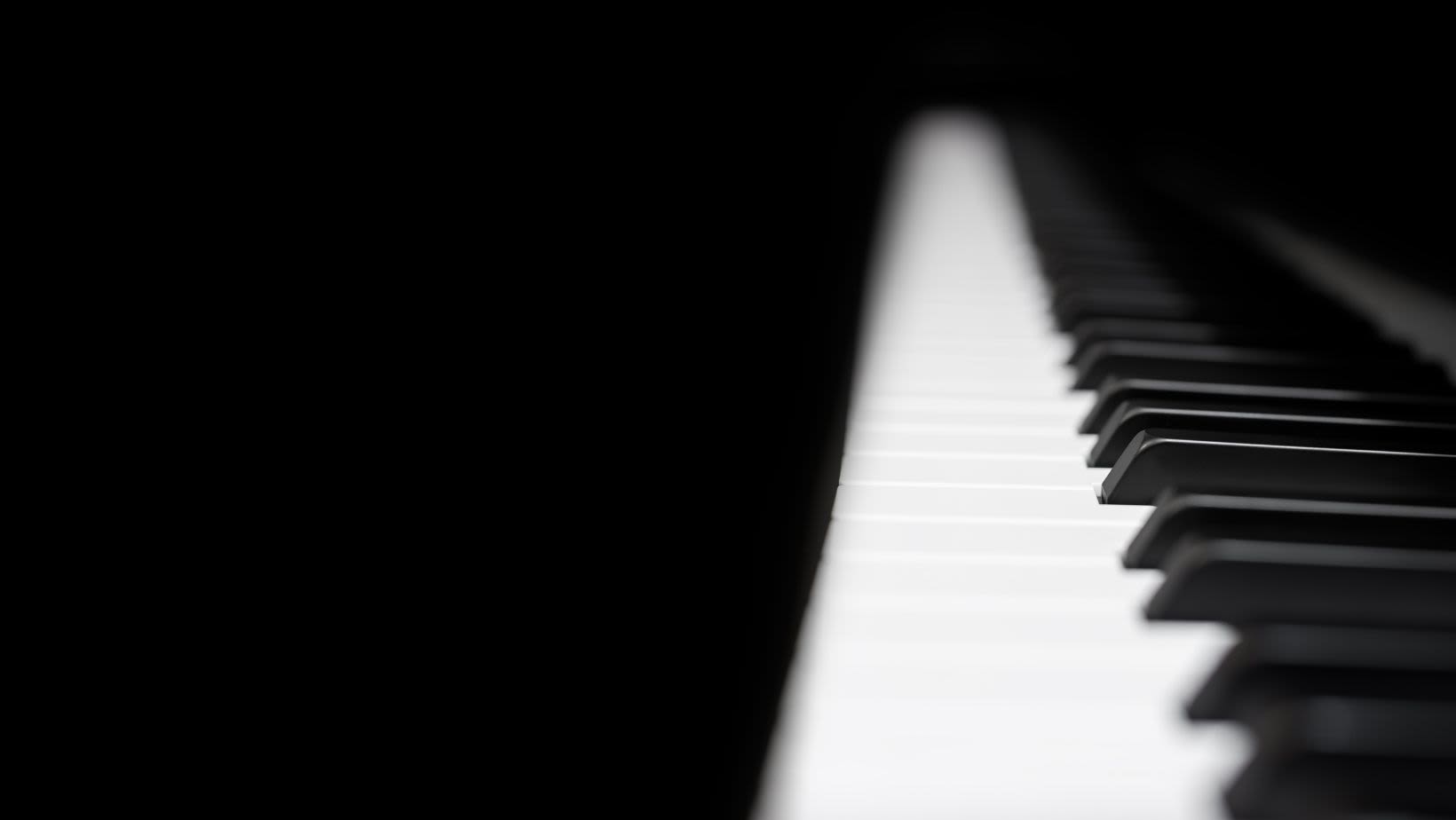
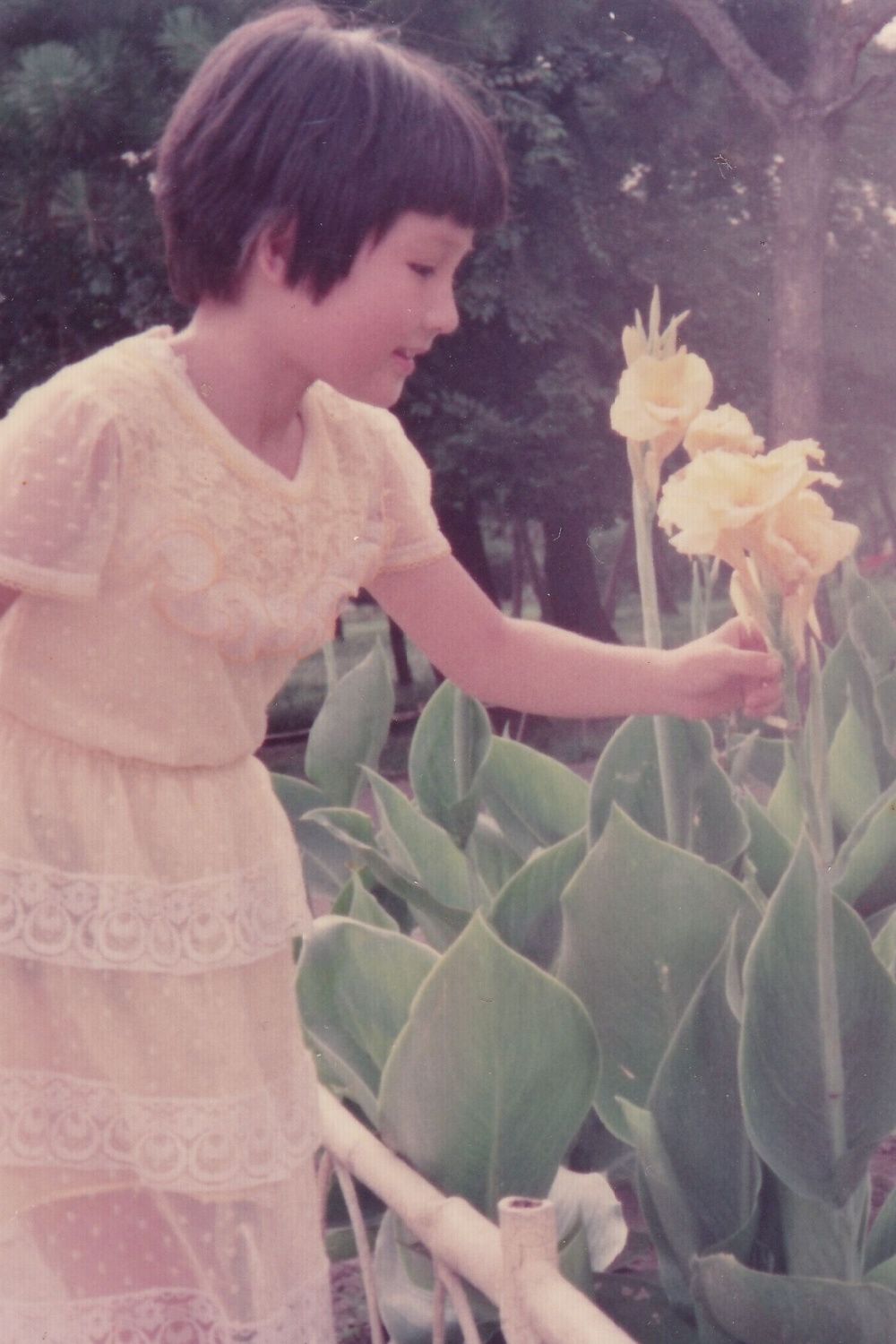
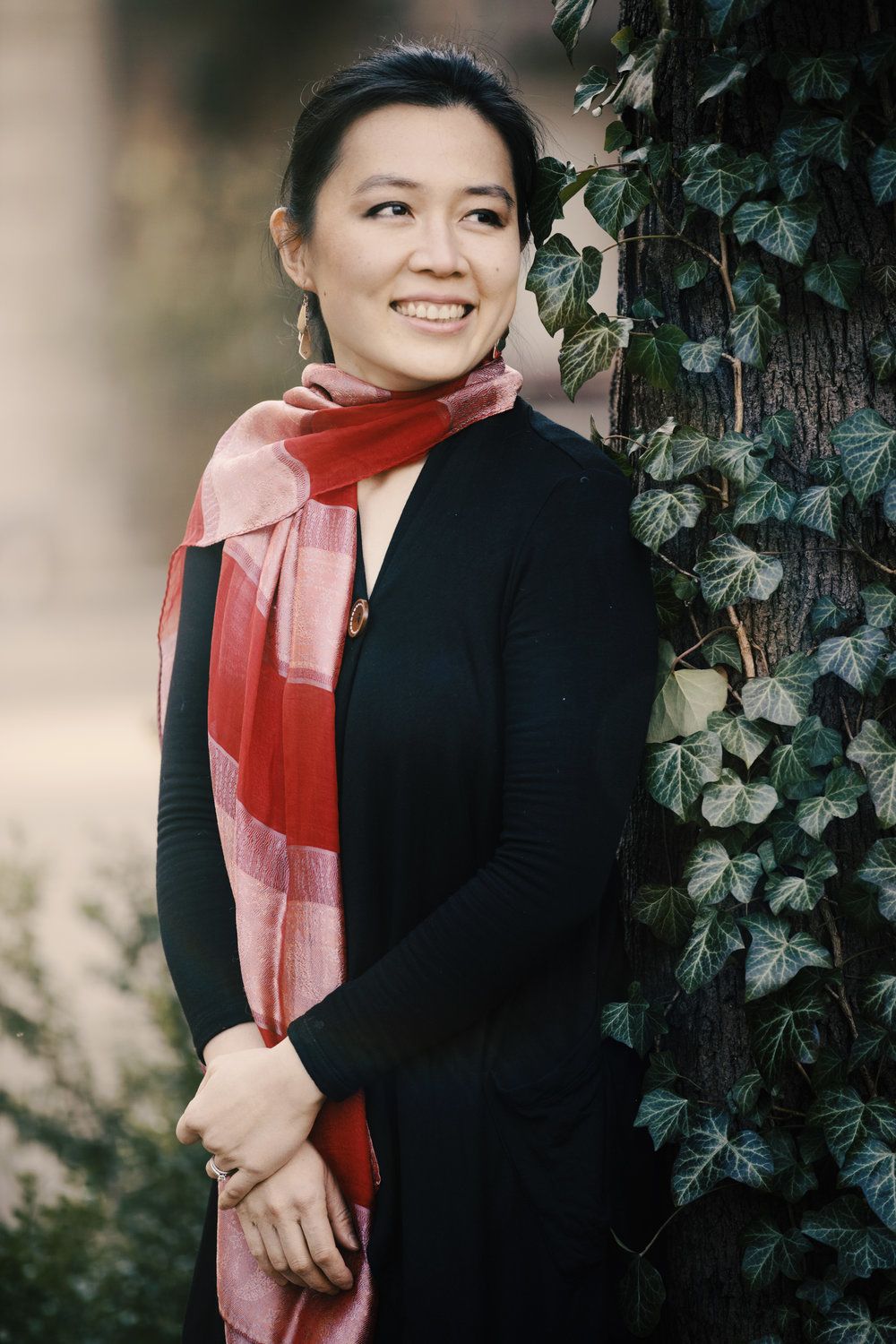
"When I think about Amy as a young pupil of mine, I see a young girl who had a voracious appetite to learn. The piano enveloped her, becoming her vehicle of musical expression, allowing her to escape into a world of dreams, summoning her fertile imagination and transporting all those who heard her perform. On a weekly basis, she astounded me with her talent and drive — and now, I cannot describe how grateful I am to have crossed paths with her, as well as her father, my dear friend, Hua who entrusted me with instilling a passion for music in his daughter,” said Timothy Hester.
After countless piano lessons and spending days in the library listening to recordings of faculty recitals, Amy went on to study at The Curtis Institute of Music, The Juilliard School, and the Yale School of Music, where she received the Parisot Award for Outstanding Pianist and the Alumni Association Prize. “Being afforded this musical background and growing up around education is why I am where I am today. Looking back, it’s unbelievable how much support I had. I was exposed to great concerts and competitions, hearing the Houston Symphony, and other amazing artists at events like the Texas Music Festival,” said Amy.
Amy will make her return to the Moores School this summer to perform her father’s second piano suite among other pieces by composers she feels an affinity for. She’s also honored to be one of the inaugural guest artists on the newly established Sharon Ley Lietzow Piano Series. “I think it is just an incredible homecoming not just at the University, but to Houston as a whole. It’s my American home where so many of our friends are, and it's because of them that I'm here. They've given me and my dad incredible moral support over the years. Especially as a first-generation immigrant, my dad making a life here and raising a family was just an impossible task. Now that I'm my father's age, when he immigrated to the states, I can't believe how he did it. So, I think it will be a very emotional concert for me, and the program that I've chosen reflects my time in Houston,” said Amy.
In 2002 General and Artistic Director of the Texas Music Festival, Alan Austin approached Hua Yang and asked if he’d like to write a piece for the Texas Music Festival.
“I was honored by this because he had already invited internationally known Chinese composers, and to be thought of in that category was delightful. I wrote Light of My Angel and my second piano suite. Light of My Angel was inspired by a tune Amy would sing when she was a toddler,” said Hua. The night his pieces were premiered at TMF by Timothy Hester, Amy was in the audience as well with her grandparents. It was close to her 17th birthday, and she had just been accepted to The Curtis Institute of Music. Amy was in awe when she heard the tune of her childhood on that stage. In fact, it was the same stage she remembers seeing pianists Stephen Hough and Angela Hewitt on as well as many other performances that inspired her musical career.

“I know they could choose anyone to be a part of this series but the fact that UH continues to think about legacy and the lineage of its community, of the musicians that they've supported over the years, is extremely meaningful to me. It takes a lot of thoughtfulness and advocacy on their part. They can choose anyone in the world, and anyone would want to be featured there.
So, I consider it such a great honor to get to play my dad’s piece with him in the audience. I think it’ll be something incredible to experience. It pays homage to the Houston part of my life but is also a glimpse into my father’s upbringing. In this music, we hear kind of an autobiography of his life, so I think it’s special in that way.”
Today, Amy effortlessly balances an active career as a soloist, chamber musician, and pedagogue. Collaborating with leading musicians, Amy Yang has toured with violinist Patricia Kopatchinskaya and with conductor Tito Muñoz and the Mahler Chamber Orchestra. She has shared the stage with such notable musicians as Anne-Marie McDermott, Yefim Bronfman, Paul Neubauer, and the Dover Quartet. She was also featured in a full episode with Emmy® Award-winning producer Jim Cotter of Articulate, aired on PBS in 2021. Amy has premiered music by Caroline Shaw, Avner Dorman, Michael Hersch, Ezra Laderman, Paul Wianko, and her father, Hua Yang.
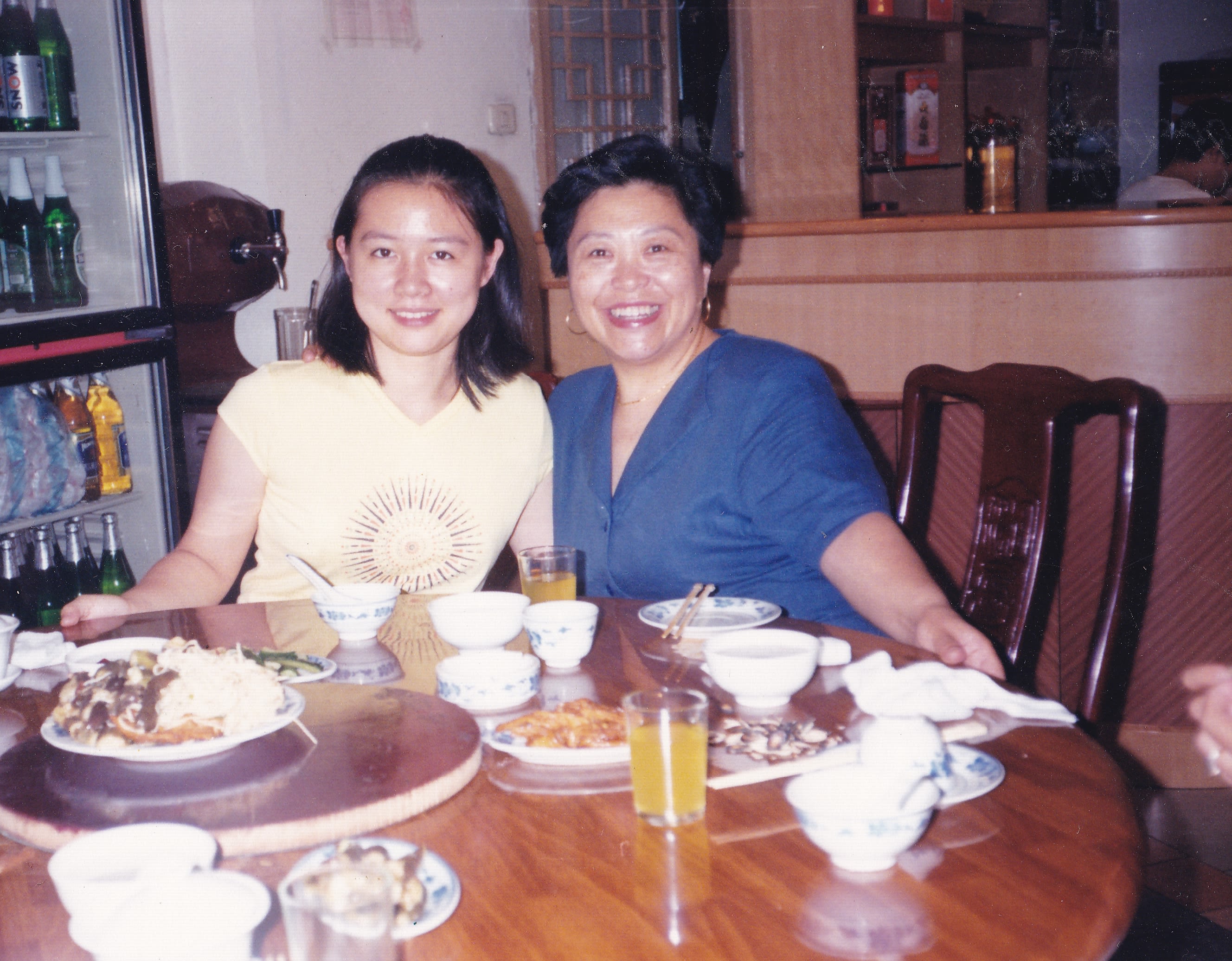
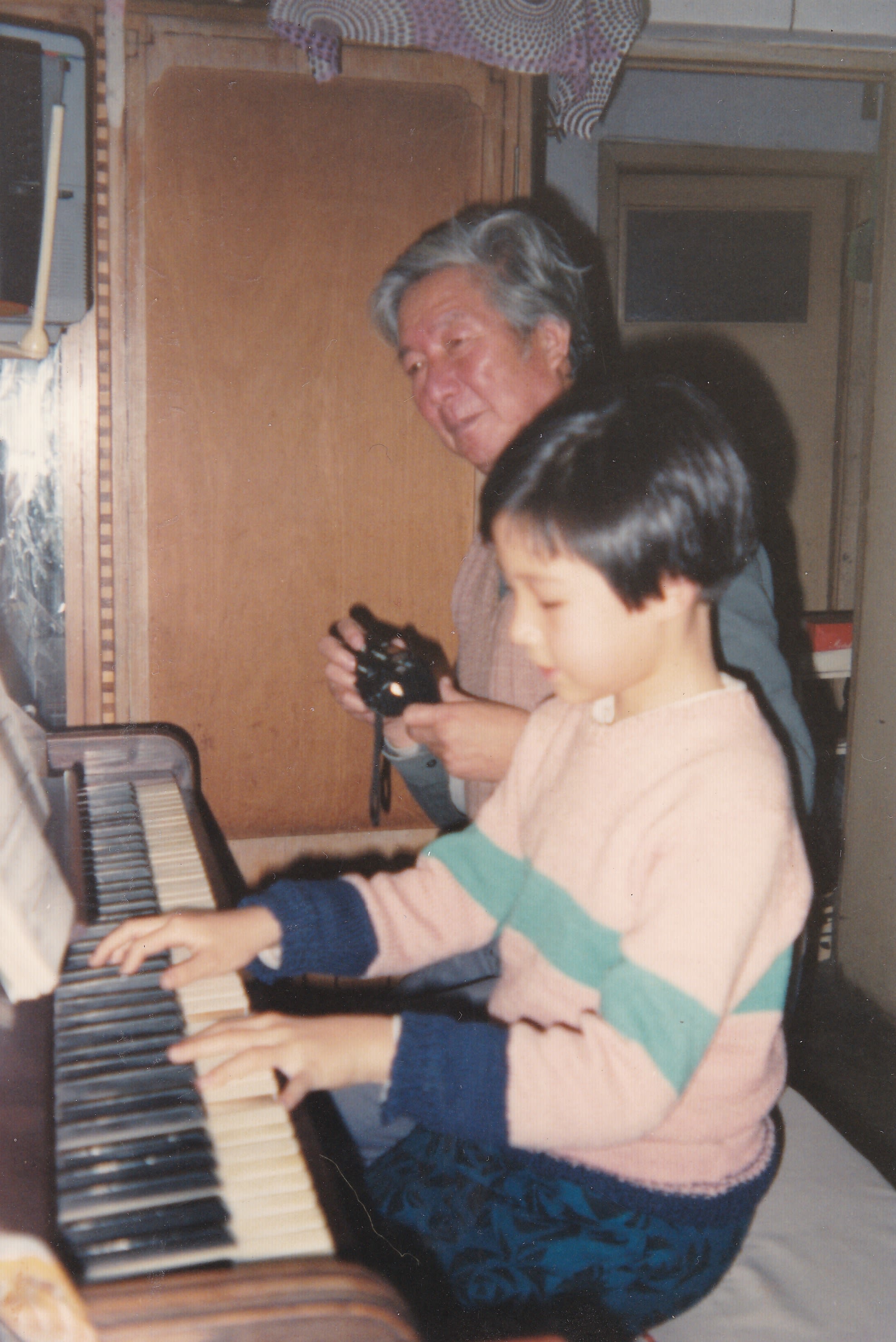
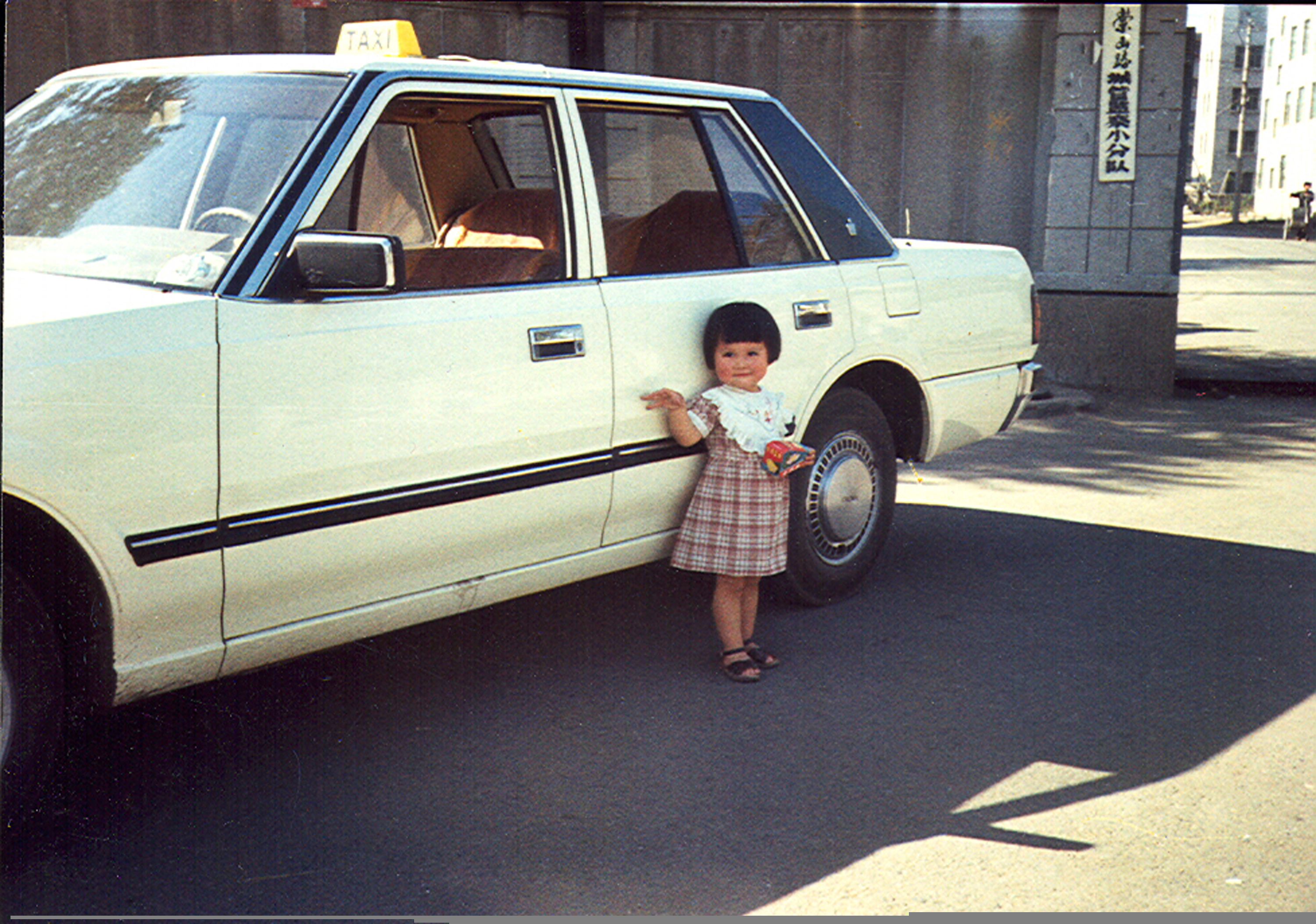
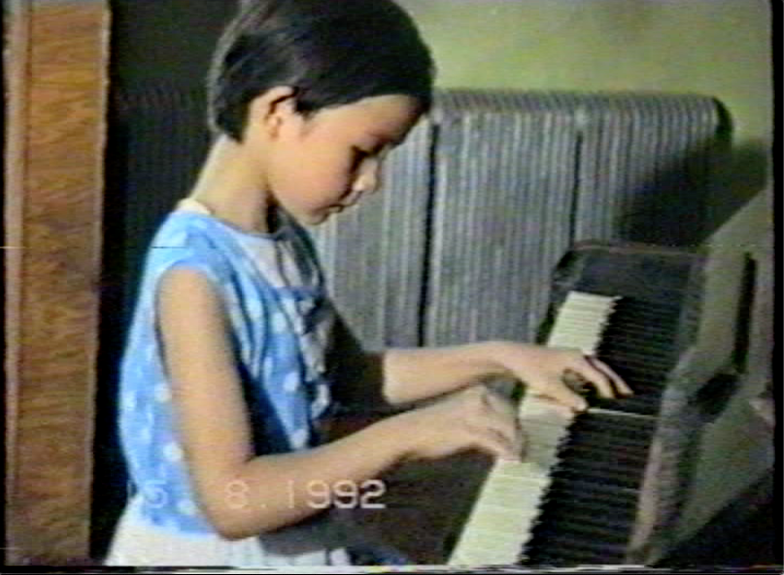

Amy with her piano teacher in China
Amy with her piano teacher in China

Amy as a child in China.
Amy as a child in China.

Amy as a child in China.
Amy as a child in China.

Amy as a child in China.
Amy as a child in China.
